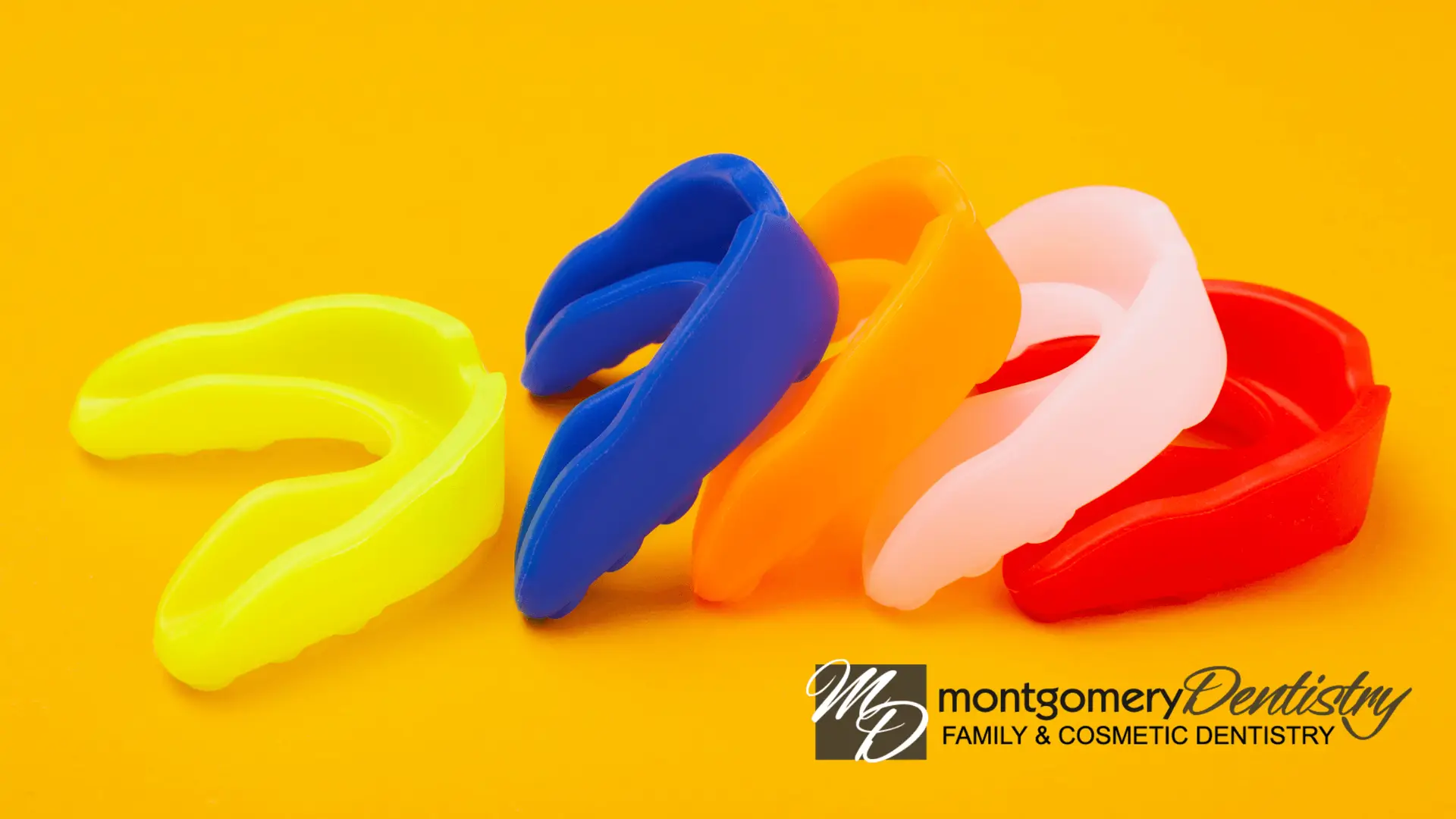Sports are so much fun and good for your health…until an injury happens. While minor aches and pains are expected, injuries to your mouth and teeth are not. In today’s blog, we are discussing sports dentistry, what to do when you have an injury to your mouth, and protecting your teeth during physical activities.
Teeth and Mouth Injuries: What to Do
Your teeth are a lifelong investment so it only makes sense to take the best possible care of them. Regular brushing, flossing, and dental visits are the best way to do that. When playing sports or participating in another physical activity, injuries happen. What do you do when you sustain an injury to your mouth and/or teeth?
If You Have a Mouth Injury with Loose Teeth
If you have sustained an injury to your mouth, lip, or gums and your teeth are loose but still in place, it is important to keep your injury clean. Rinse often with warm salt water and limit your foods to soft foods to prevent further loosening of the injured teeth. While this is not a true dental emergency, it is wise to visit a dentist to make sure no infection is growing.
If You Have a Chipped or Broken Tooth
When you have an injury with a chipped or broken tooth, the first thing you need to do is locate the chipped or broken tooth if possible. Place it in cold milk, water, or saliva for storage. Contact your dentist and let them know what happened. It is possible that the chipped or broken piece of the tooth could be bonded back in place.
If You Have Knocked a Tooth Out Completely
If your tooth is knocked out completely, again you want to locate the tooth if possible. Try your best to only touch the crown of the tooth (the part that chews food) and not the root portion of the tooth. If you need to clean it off, use water only. If your mouth is dirty or bleeding a lot, swish with water or warm salt water then gently put the tooth back in its socket. Keep it in place with your fingers then gently close your mouth. Gauze or a wet washcloth can help hold it in place also. It is possible that the tooth will grow back in place.
If you cannot get the tooth back in the socket, place it in milk or saliva for storage. Do not wrap it in tissue or put it in water. Water is harmful to the root area of the tooth and can prevent any possibility of it being put back in place successfully.
Call your dentist and let them know what happened. Ideally, visit your dentist with your tooth within 30 minutes. Occasionally a tooth that has been knocked out for an hour can be successfully re-inserted but don’t count on it. No matter the time frame, be sure to visit your dentist to prevent infection and make plans for further repair if needed.
Protecting Your Teeth During Physical Activities
“The best offense is a good defense” is a saying that holds true in sports but also for protecting your teeth during physical activities. If you are participating in sports, especially high-impact sports, or any physical activity that presents a significant risk for a mouth injury, an athletic mouth protector (a mouthguard) is crucial. A properly fitted mouthguard can lessen the damage of sports-related dental injuries. As mentioned before, your teeth are a lifelong investment so it only makes sense to wear a protective mouthguard when playing sports!
Tips for Choosing a Quality MouthGuard
Always ask your dentist about a mouthguard they recommend. They may have a brand they prefer or even offer them in the office. If not, here are the recommendations from the American Dental Association:
- A proper mouthguard will be properly fitted to your mouth. You don’t want it floating around a lot but want a snug but comfortable fit.
- It should be adapted to the shape of your teeth.
- It will cover all of the upper teeth (maxillary) and is made of a material approved by the US Food and Drug Administration.
- It should be relatively easy to clean.
- It should be designed in a manner to absorb high-impact forces to lessen their impact on your teeth.
There are 3 types of mouthguards available. Keep the above list in mind when making the choice of which mouthguard is right for you.
Custom Made Mouthguards
Custom-made mouthguards are fitted in a dentist’s office and form precisely around your teeth. These are considered the most protective of mouthguards but they are also the most expensive and several dental visits are needed to have them made. Talk with your dentist about custom-made mouthguard options.
Mouth Formed
Mouth-formed mouthguards are also known as “boil and bite” mouthguards. These are intended to be boiled for a short time (around 15 seconds) to soften the material, then quickly cooled, then placed in your mouth to be molded around your teeth. Mouth-formed mouthguards can be molded easily at home but if you have braces or special dental work, talk to your dentist about doing them in their office. These mouthguards are inexpensive and can be purchased at many sporting goods stores and online. While not as precise a fit as a custom made mouthguard, the boil and bite method does provide a measure of comfort, fit, and protection.
Ready Made
Ready-made mouthguards are exactly that – ready to go in your mouth! They are readily available at many stores and are the least expensive. The downside is that you must keep your mouth closed for it to stay in place and it offers the least protection of any mouthguard style. Some protection is better than none though in regard to your teeth!
Montgomery Dentistry Can Help You Protect Your Teeth
We want you to enjoy the sports and recreational activities that you love but also want you to protect your teeth! Remember to follow our tips if an injury to your teeth occurs and do your best to wear a good-fitting mouthguard during high-impact activities. Our doctors and staff can guide you on the best-fitting mouthguards and will also be there if an accident happens!
Contact our office for any emergency dental services that may arise. Enjoy yourself and wear a mouthguard to protect your teeth!
About the Author
-

Dr. Amy Morrison Anderson
Dr. Amy Morrison Anderson joined our practice in July 2005. She is a lifelong resident of Montgomery, and a graduate of Jefferson Davis High School, Auburn University, and the University of Alabama, Birmingham School of Dentistry.
She is a member of the American Dental Association, the Alabama Dental Association, and the Academy of General Dentistry.
Dr. Anderson most enjoys doing veneers. “The reward of seeing my patients’ self-confidence and self-esteem boosted by a beautiful smile is immeasurable.”
Brandon, her husband, is also a graduate of Jefferson Davis High School and Auburn University. They have one daughter, Bailey Elizabeth, and twin sons, Caden and Cole.
